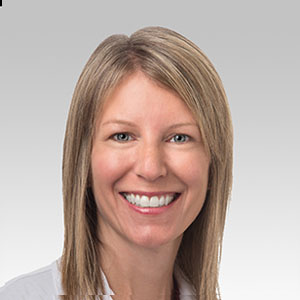Facing Secondary Infertility
Infertility May Occur Even After Conceiving Previously
Infertility can be a stressful, emotional experience, and if you’re having trouble conceiving after the birth of your first child – also known as secondary infertility – you may be feeling guilty for wanting another child, pressure to conceive again, and everything in between.
“Sadly, there is a social stigma associated with infertility, and couples often feel deeply ashamed for not being able to conceive. In many ways, secondary infertility can be more difficult because the couple so badly wants a sibling for their first child, and you’re surrounded by constant reminders of your infertility,” says Eve Feinberg, MD, reproductive specialist for Northwestern Fertility and Reproductive Medicine.
Secondary infertility is more common than you think, accounting for more than half of all infertility cases in the United States. “The good news is that a woman with secondary infertility knows she is capable of successfully having a baby, so the goal is finding the root cause, and fixing it,” says Dr. Feinberg.
There are several ways to manage secondary infertility:
Look for a Cause
The most common reason for secondary infertility is a woman’s age. A woman is born with all the eggs she will ever have, and with age, the number and quality of her eggs decrease. For many woman, fertility peaks at 28, and takes a sharp decline around the age of 35. Other causes that contribute to secondary infertility are structural complications, such as scar tissue from a previous C-section or a previous miscarriage, blocked fallopian tubes, endometriosis, weight fluctuations, or low sperm count. A diagnostic evaluation can pinpoint the root cause, and working with a fertility specialist can help you explore your treatment options.
Treatment
Secondary infertility is treated the same way as any other type of infertility with options ranging from medication to stimulate ovulation to in vitro fertilization. Women 35 and over who are having difficulty getting pregnant should consider seeing a fertility specialist within six months of trying. Women who are younger than 35 should see a specialist after a year of actively trying, advises Dr. Feinberg.
Prepare Yourself for Emotions and Reactions
Very often, couples who experience secondary infertility had no trouble getting pregnant the first time, and a diagnosis of secondary infertility can be surprising. You may experience anger, sadness and even guilt in not being able to conceive, so reaching out to support groups and blogs may help you cope.
Be Ready for Questions
Inquiring grandparents and anxious friends may want to know when Baby #2 is on the way. Prepare yourself with a few answers and practice saying them out loud so you can better respond in the moment. And if your comebacks stop working, know that it’s okay to politely ask people to mind their own business.
Treatment = Logistics
You may not be ready to share your struggles publicly, but fertility treatment often requires frequent tests and procedures, so you may need help with your other child(ren) while you go to your appointments. Look for a fertility practice that is kid-friendly, and enlist the help of a friend or neighbor who you can lean on during these times. You might also want to consider letting a trusted co-worker or manager know about your situation to help you manage your work load and schedule to accommodate your appointments.
Above all, remember you are not alone. Nearly 12 percent of women in the United States with one child have difficulty getting pregnant again, accounting for more than half of all infertility cases, according to Resolve, the National Infertility Association.
“Infertility is a medical disease, and should be treated as such. The diagnosis of infertility is just as stressful for a couple as the diagnosis of cancer,” says Dr. Feinberg.






